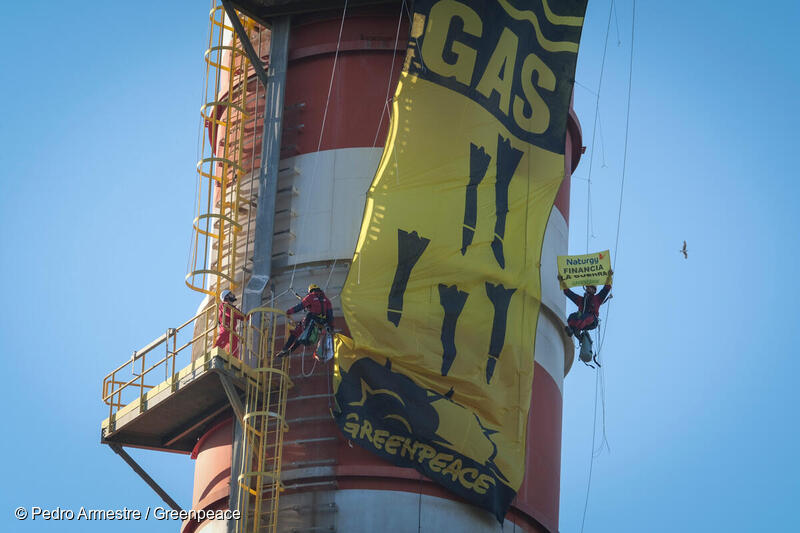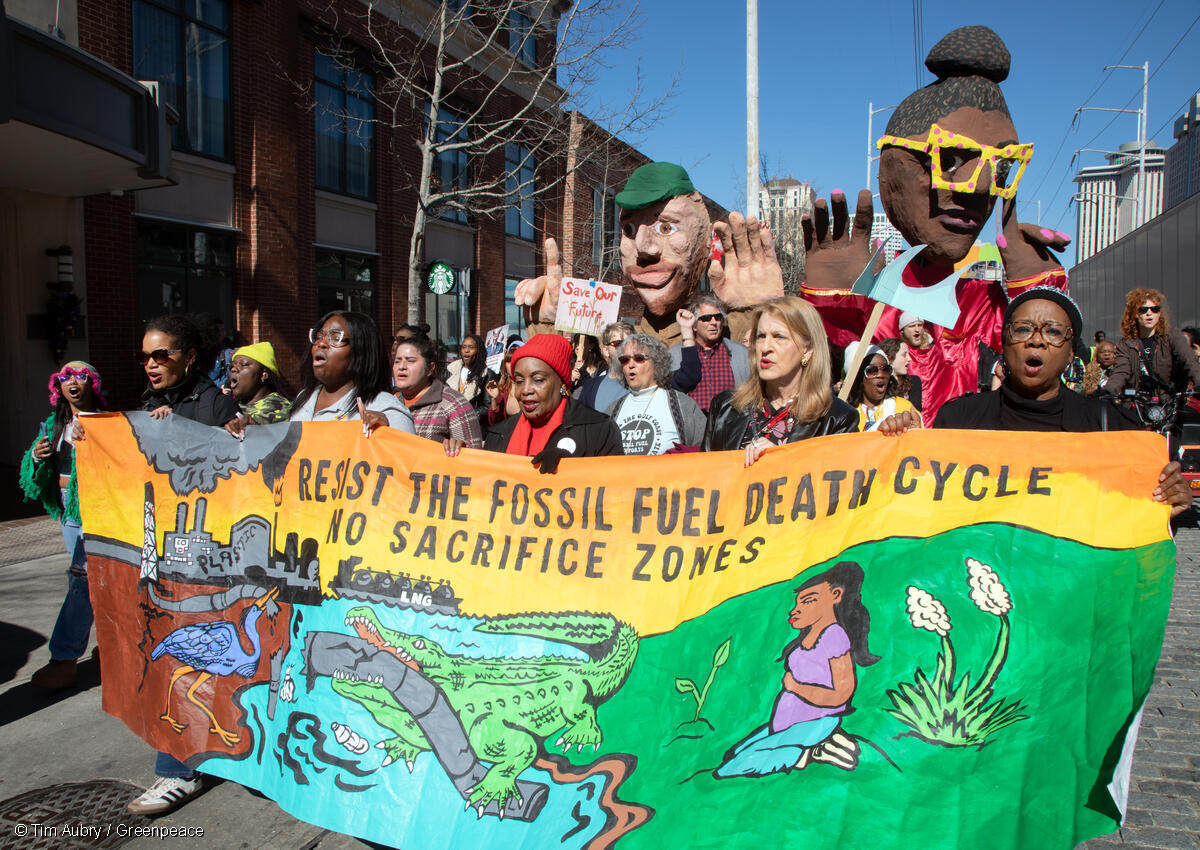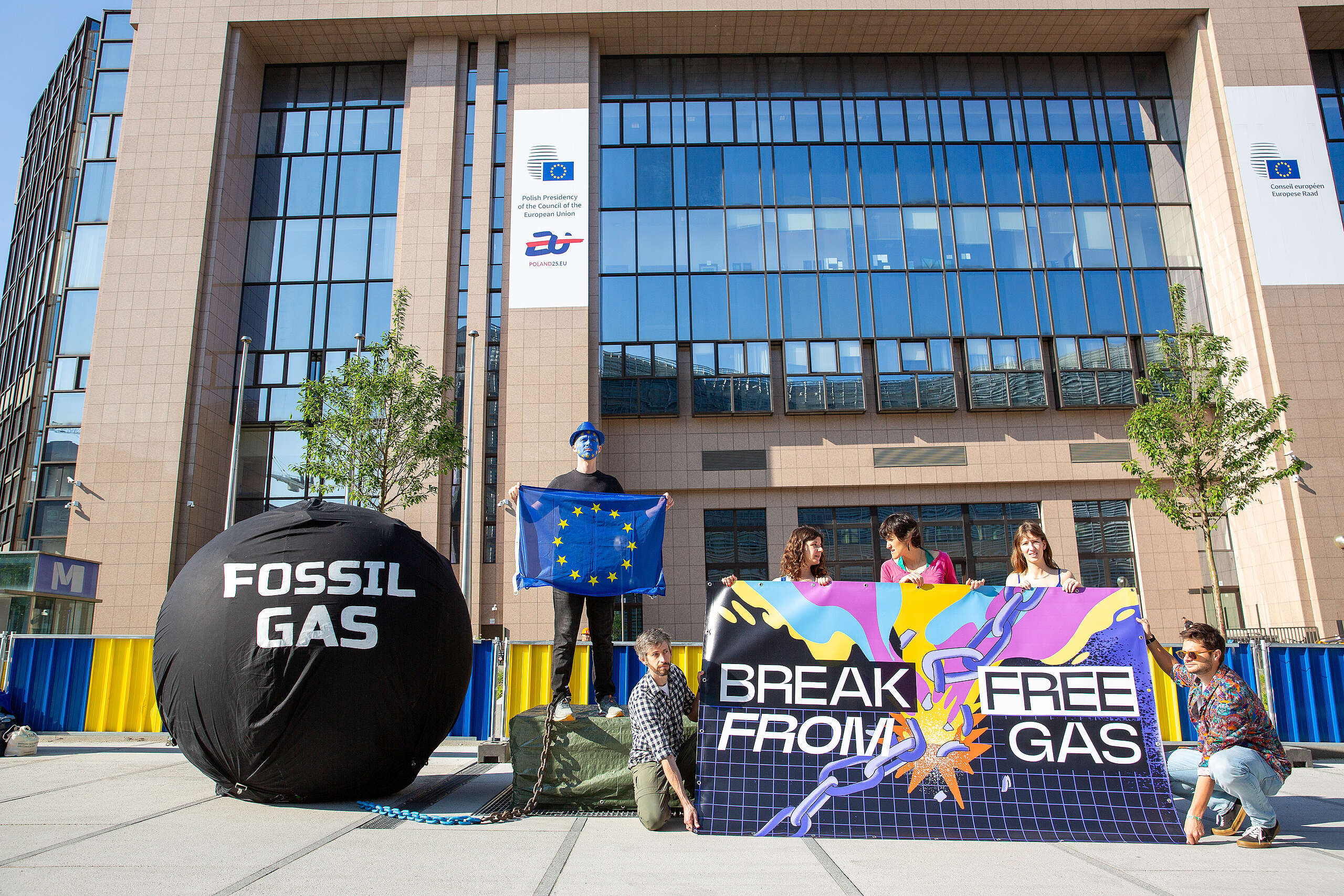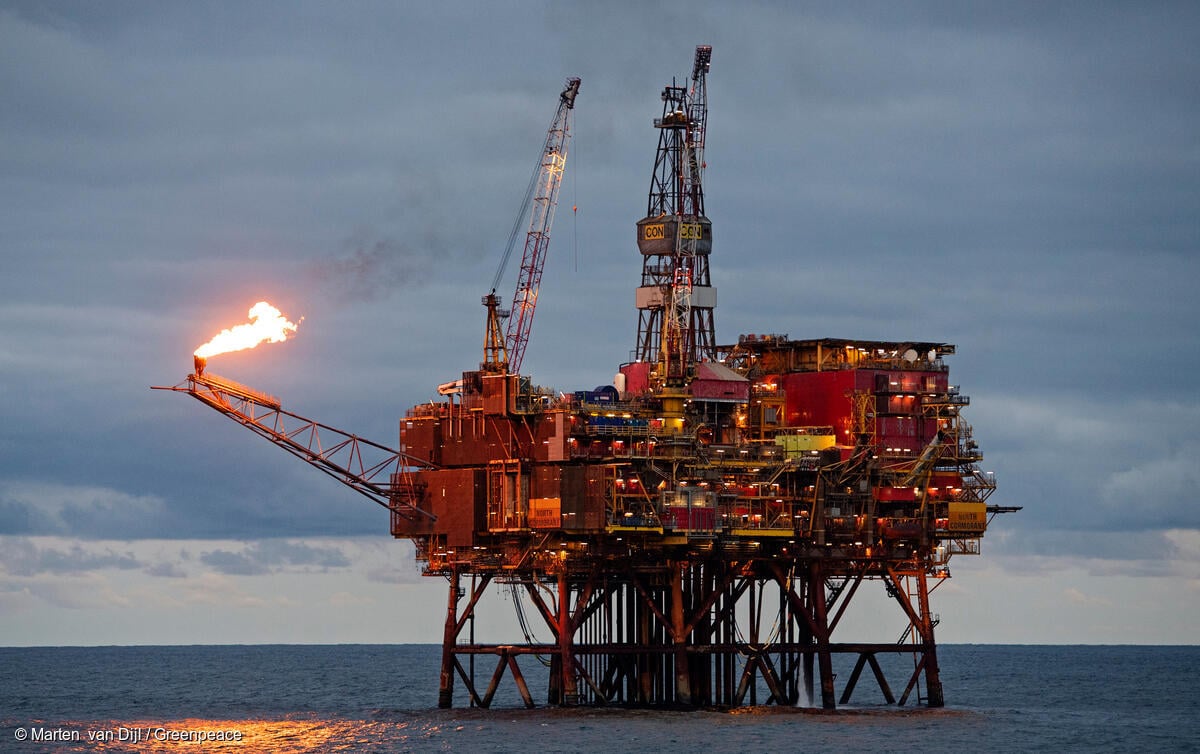Before the invasion of Ukraine, Europe could choose how quickly to wean itself off fossil fuels. Now there is no choice: it must do so as fast as possible, for Ukrainians, for Europe’s security and for the climate.

Josep Borrell, the EU’s top diplomat, recently delivered a line that sums up the situation in Europe: “Each day, roughly, we are paying €1 billion to import Russian energy, and that’s a source of income that’s used to finance the war”.
Many politicians across Europe are trying their best to justify prolonging this truly deplorable state of dependence on Russian energy, mostly by conjuring up scary pictures of the European economy going into deep recession. Though many experts question the scale of the recession presaged by politicians like German chancellor Olaf Scholz, we are told that stopping this hypocritical stance immediately is unfortunately impossible because of the high economic costs. Yet, most commentators would agree that the writing is on the wall when it comes to Europe’s energy links to Russia. The question remaining is: how fast will a phaseout happen and which country will move first?
With Russia abruptly stopping the flow of gas to Poland and Bulgaria, and gas through Ukraine also drying up, it is dawning on many European governments that they may be forced to do what they thought impossible only weeks ago. However, a major problem is illustrated by the first statement of the president of the European Commission, Ursula von der Leyen, after Gazprom closed the taps for Poland and Bulgaria: nowhere in that statement can you find a reference to the need for energy savings and a radical build-up of renewable energy. The focus is instead solely on “working with international partners to secure alternative flows”.
The same can be said for comments from national governments. In Poland, for example, official sources have sought to reassure the population by pointing to the “diversification of oil and gas sources”.
No-one is brave enough to admit that “alternative flows” (a code name for maintaining the addiction to fossil fuels) keeps Europe exposed to energy price spikes and the whims of autocrats, who are also often tacit friends of Putin.
EU governments have been focussed on securing dubious alternative supplies of fossil fuels, from Saudi Arabian oil to Azerbaijani gas or US fracked gas. And while energy companies make a killing from selling polluting fuels in the midst of a war and energy crisis, several governments have reduced taxes on fuels. Evidence shows that this is a terrible move: on one hand it maintains high demand, and on the other it disproportionately supports the biggest and richest energy users, instead of helping those households least able to bear the brunt of energy price increases.
It really looks like no government has a viable long-term energy security plan that will also tackle the climate and nature crisis. A Maori phrase “ka mua, ka muri” describes the energy transition situation in Europe very well: it translates as “we walk backwards into the future.”
It does not need to be this way
Instead of swapping fossil fuels dependence, the European Union and its governments have an incredible opportunity to accelerate the energy transition. This should mean an unprecedented programme to roll out and support home insulation, heat pumps and renewable district heating, alongside a continent-wide effort to solarise our roofs and other available spaces, while continuing to expand wind energy and develop battery storage. All the while, demand and support for fossil fuels needs to shrink as fast as possible.
Energy savings and energy efficiency, in particular, are the fastest and cheapest way to cut Europe off from Russia and fossil fuels in general. Yet, this is the element least mentioned by politicians and the media. Yes, some politicians have talked about lowering the temperature on our thermostats, but this is way below the scale of the challenge and it takes no account of energy inequality. Some people already spend winters shivering under two layers of jumpers, while others swim in heated pools in exotic locations reached by private jet.
It’s time for a war economy approach to energy efficiency. This could mean rationing energy for those companies or individuals who waste the most energy with no tangible benefit for society, while supporting families struggling to heat their homes. It could also mean drastically taxing the gargantuan windfall profits of those corporations accelerating the energy crisis, and the climate and nature emergency.
The way we travel also needs a major overhaul. Private jets and short-haul flights should become a thing of the past, while public transport should be free of charge and climate-friendly, and rail networks extended across the continent.
According to one of the top global energy experts, Amory Lovins, energy efficiency is “the largest, cheapest, safest, cleanest and fastest way to address the energy crisis”. His Rocky Mountain Institute calculated “that at least two-thirds – and probably as much as three-quarters – of all fossil fuel-generated energy could be profitably saved in most industrialised countries”. This will require “integrative, or whole-system design”, which means new engineering to achieve radically more energy-efficient results by changing the design logic, but also radical political decisions to reduce unnecessary use of energy to live within planetary boundaries, such as the transport of food over long distances. Energy efficiency programmes need to get off the ground as soon as possible, in order to have an impact before next winter comes.
Political courage
Meanwhile, European policies on renewable energy remain rooted in the past. Solar Power Europe, an organisation representing the solar industry, claims that it is eminently possible to almost double the solar energy accounted for in the European Commission’s initial plan to wean the EU off Russian energy (known as RePowerEU).
Some politicians, like Germany’s foreign minister Annalena Baerbock, have labelled renewable energy a matter of national security. Arguably, this was the case even before the invasion of Ukraine – the Pentagon has called the climate crisis a “threat multiplier” – but nothing so far indicates that European politicians are prepared to walk the talk.
It is worth recalling what can be done if there is a genuine political will to shake up the system. US aircraft production in 1939 stood at 30,000 units. At the end of the Second World War in 1945, it had reached 300,000, a feat that many doubted was possible at the start of the war. If governments can mobilise the economy to win a war, then there is no reason they cannot do so to stop one from spreading and prevent an even greater planetary crisis. This time it is wind turbines, solar panels, heat pumps and energy efficiency that can bring us peace, security and resilience.
Public funds should immediately support renewable energy storage and the development of district heating and home insulation. Workforces should be retrained and redeployed on an unprecedented scale. And public policies and education programmes should encourage local, sustainable food production that does not rely on fossil fuel based pesticides.
We need political leaders who can see the true scope and urgency of the challenges we are faced with, and seize the opportunities to transform the economy to preserve life on this planet. Putin’s war means there is no time to waste. It should be abundantly clear that the ‘replacement’ (“alternative flow”) approach could in fact prepare the ground for further geopolitical conflicts and threaten European stability.
On 14 April, Vladimir Putin said “Europe currently has no alternative to Russian gas supplies”. At this moment of our European history, we should reject the notion that national governments and the EU do not have the means to do whatever it takes to get rid of fossil fuels way faster than any Kremlin planners thought was possible. Green war bonds or taxation of windfall profits by fossil fuel companies are some of the most obvious examples of how to fund this effort, but ultimately nothing can hold back our imagination if there is political will.
Dark ages do not occur for lack of sunshine, but for lack of leadership. By now it should be clear that there is only one question left for political leaders in Europe: “Can we find enough courage and ambition to prove Putin wrong?”
Maciej Muskat
Development director at Greenpeace Central and Eastern Europe



